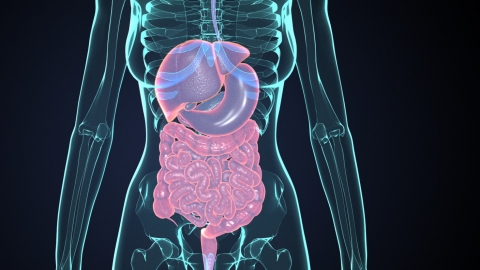What happens if liver function is abnormal?
Generally, abnormal liver function may lead to impaired digestion, malnutrition, abnormal hormone metabolism, coagulation dysfunction, jaundice, and other effects. A detailed analysis is as follows:

1. Impaired Digestion
The liver is a vital digestive gland, and abnormal liver function can lead to reduced digestive capacity. Patients commonly experience symptoms such as decreased appetite, nausea, vomiting, and abdominal distension. Under a doctor's guidance, medications such as polyene phosphatidylcholine capsules, domperidone tablets, and mosapride citrate tablets may be used to help improve liver function and promote recovery of digestive function.
2. Malnutrition
Abnormal liver function can interfere with the absorption and metabolism of nutrients, leading to malnutrition and weight loss. Additionally, the liver is a key organ for synthesizing vitamins. Liver dysfunction can therefore lead to deficiencies in vitamins such as vitamin K, vitamin B1, and vitamin B2. Treatment involves addressing the underlying cause as well as supplementing with multivitamin tablets, vitamin E soft capsules, and vitamin A tablets to correct vitamin deficiencies.
3. Abnormal Hormone Metabolism
The liver is a major site of hormone metabolism, and impaired liver function can lead to abnormal hormone metabolism, such as involving estrogen and adrenaline. This may cause patients to experience symptoms of endocrine disorders, such as mood swings and menstrual irregularities. Under a doctor's recommendation, medications such as levothyroxine sodium tablets, thyroid tablets, and testosterone undecanoate soft capsules may be used for treatment.
4. Coagulation Dysfunction
The liver plays a crucial role in synthesizing coagulation factors, and abnormal liver function can result in coagulation disorders. Patients may experience symptoms such as nosebleeds, gum bleeding, and skin bruising. Under medical guidance, medications such as warfarin sodium tablets, clopidogrel bisulfate tablets, and tranexamic acid tablets may be used for treatment.
5. Jaundice
Abnormal liver function can disrupt bilirubin metabolism, leading to jaundice. Symptoms include yellowing of the skin and sclera, and in severe cases, darkened urine may also occur. As directed by a physician, medications such as phenobarbital tablets, anti-inflammatory and cholagogic tablets, and ursodeoxycholic acid capsules may be used to relieve symptoms.
In daily life, it is important to maintain a balanced diet, avoid excessive alcohol consumption, eat fewer greasy, spicy, or irritating foods, and consume more vegetables, fruits, and whole grains rich in vitamins and fiber. Regular moderate exercise is also beneficial for weight management and helps prevent diseases such as obesity and diabetes, thereby indirectly protecting liver health.






